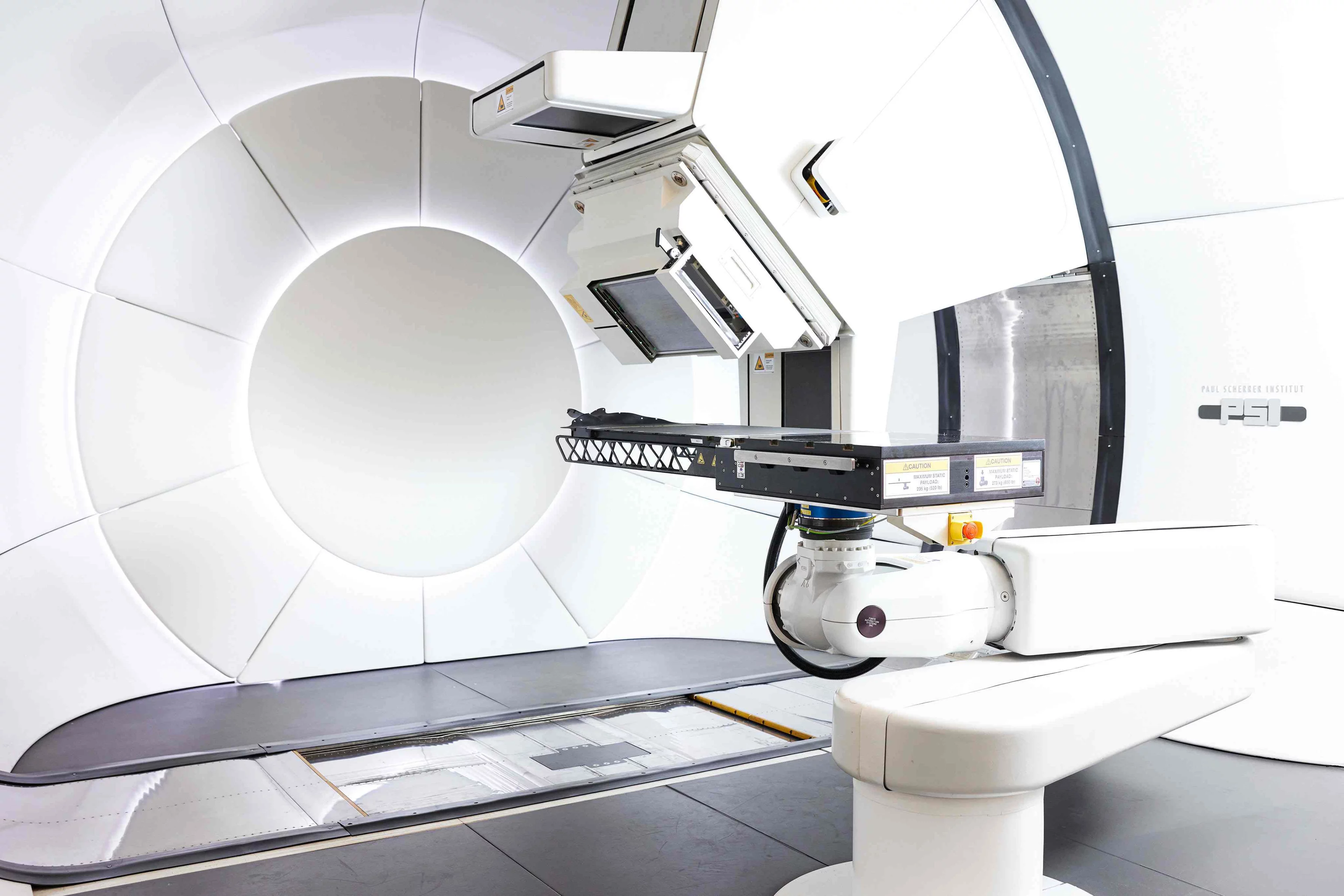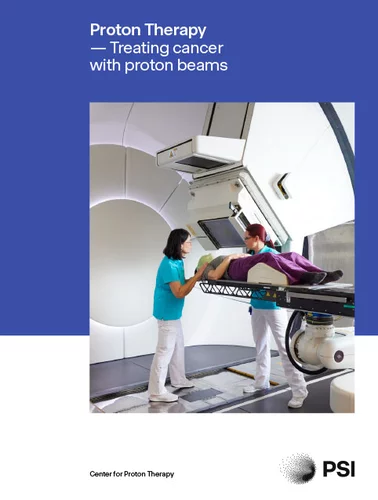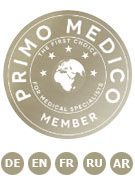Deep-seated tumors are treated at Gantry 2 and Gantry 3.
New requests for treatment usually reach us via e-mail or telephone from a referring doctor or sometimes from a patient directly. Here you find the procedure for a treatment request.
Preparation for Treatment
A computer tomography (CT) is necessary to plan the therapy. To this end and to facilitate an exactly reproducible position, the patient is fitted with an individual support. This can consist of a mask, a bite-block or a vacuum mattress, or a combination of supports. The tumor is drawn into the CT slice images. In order to protect the organs which are at greatest risk, their contours are also drawn into the slice images. The whole course of the treatment is then planned and the exact dose to be administered is calculated. Our doctors will also take up contact with the referring physicians in order to ensure a reliable exchange of information and continual medical care before, during and after treatment.
Administration of the Treatment
The total duration of the treatment series depends on the type of tumor, on the therapies previously administered, and on those planned for after proton therapy. Usually our patients are irradiated on an out-patient basis from Monday to Friday for five to eight weeks with a daily dose of 1.8 to 2.0 Gy(RBE). On average, a patient lies either on the back or face-down for between 30 and 60 minutes without moving. Most of this time is used in positioning the patient with the greatest possible care. Immediately before treatment, the precision of the patient’s position is measured by means of two x-rays. The irradiation itself lasts only a few minutes.
Small children are treated under sedation, making it possible for them to remain exactly positioned during treatment. Radiation treatment under sedation is made possible through a close cooperation with the Anesthesia Team of the Children’s Hospital of Zürich.
Accommodation options for patients with a long travelling distance
Because acute side effects during the series of treatments are so seldom in almost all of our patients, it is only rarely necessary that a patient must be admitted to one of the local hospitals. Usually, these are chemo-therapy patients. All other patients are treated on an outpatient basis and either come from home every day or - if a daily arrival is not possible - live in a hotel or vacation apartment in the vicinity of PSI. Our patient office gladly offer their help in finding appropriate accommodations. Although proton therapy is generally very well tolerated, our patients should not live alone during the series of treatments, but should rather have a family member or friend with them.
TV report of the BBC
Short film about the treatment of deep-seated tumors at CPT. This film was recorded by BBC Northwest on 7th June 2017 with the purpose of informing the British public about proton therapy in preparation for the first UK proton center currently being built in Manchester.



